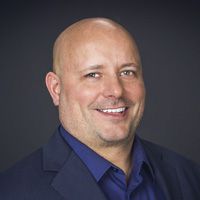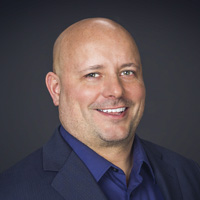Don't Let an Ego-Driven Portfolio Crash Your Retirement
Congratulations, you managed to put together a brag-worthy investment portfolio, but making the adjustments necessary to keep it there takes a lot of work. Over the years, it's not uncommon for even the best investors to lose touch, and by the time they ask for help, it can almost be too late.


Profit and prosper with the best of Kiplinger's advice on investing, taxes, retirement, personal finance and much more. Delivered daily. Enter your email in the box and click Sign Me Up.
You are now subscribed
Your newsletter sign-up was successful
Want to add more newsletters?

Delivered daily
Kiplinger Today
Profit and prosper with the best of Kiplinger's advice on investing, taxes, retirement, personal finance and much more delivered daily. Smart money moves start here.

Sent five days a week
Kiplinger A Step Ahead
Get practical help to make better financial decisions in your everyday life, from spending to savings on top deals.

Delivered daily
Kiplinger Closing Bell
Get today's biggest financial and investing headlines delivered to your inbox every day the U.S. stock market is open.

Sent twice a week
Kiplinger Adviser Intel
Financial pros across the country share best practices and fresh tactics to preserve and grow your wealth.

Delivered weekly
Kiplinger Tax Tips
Trim your federal and state tax bills with practical tax-planning and tax-cutting strategies.

Sent twice a week
Kiplinger Retirement Tips
Your twice-a-week guide to planning and enjoying a financially secure and richly rewarding retirement

Sent bimonthly.
Kiplinger Adviser Angle
Insights for advisers, wealth managers and other financial professionals.

Sent twice a week
Kiplinger Investing Weekly
Your twice-a-week roundup of promising stocks, funds, companies and industries you should consider, ones you should avoid, and why.

Sent weekly for six weeks
Kiplinger Invest for Retirement
Your step-by-step six-part series on how to invest for retirement, from devising a successful strategy to exactly which investments to choose.
“Please just fix it.”
I think a lot of investors would be surprised how often financial advisers hear those four little words. And how often, by the time someone asks, it’s almost too late for us to offer any help.
Just recently, for example, I had a gentleman who’s been handling his own investing for decades come in and tell me he just can’t do it anymore. He’s 72, he’s been diagnosed with cancer, and his wife isn’t the least bit interested in managing their accounts. “I’m realizing we need professional help,” he said.
From just $107.88 $24.99 for Kiplinger Personal Finance
Become a smarter, better informed investor. Subscribe from just $107.88 $24.99, plus get up to 4 Special Issues

Sign up for Kiplinger’s Free Newsletters
Profit and prosper with the best of expert advice on investing, taxes, retirement, personal finance and more - straight to your e-mail.
Profit and prosper with the best of expert advice - straight to your e-mail.
I took a look, and there was the typical mishmash of investments. They were chosen, I’m sure, with good reason at some point. But at some point, those reasons went away.
One position that stood out was General Electric. It’s been headed in the wrong direction for a while now, and yet, he’d held on. Why?
Well, he said, they have a new CEO, and they might turn it around. There’d been times when he’d made money with it, and he wanted to see it come back. And he felt the dividend made it worth keeping.
“But the truth is, I’d sell all this stuff tomorrow if you could just fix it for us,” he said.
That was on a Friday. The following Tuesday, GE announced it was cutting its quarterly dividend to a penny a share — the eighth-largest dividend cut in the history of the S&P 500. The stock is down to a price that might make it a good pickup for someone — but not necessarily for a couple in their 70s who need to pull income from their nest egg.
And now my new client is going to chemo treatments, he’s not feeling well, and he and his wife are trying to get back to our office to get everything figured out.
Of course, I’m going to help them. I just wish they had come in a lot sooner.
I’ve had couples come in and tell me they’ve already filed for Social Security, sold their house and want to retire in a month. I’ve met with widows who have no idea what’s in their portfolio, because their husband took care of everything. And I’ve worked with 30-somethings whose parents sent them to me because they saw the value of getting advice sooner rather than later.
Guess who’s better prepared for retirement?
People frequently ask me when it’s time to go see a financial adviser — and the answer is always, “It depends.” Fifty to 55 is good. Younger is better.
But the problem is that many DIYers aren’t ready to let go at that age. We get a lot of people — men mostly — who, when they’re 50, are filled with bravado. They like to play the market and brag to their friends about their wins. It’s an ego thing.
Unfortunately, that ego-driven portfolio is often lacking in diversification or any sort of holistic plan that will work for them in retirement. DIYers often stick with strategies and products they know (stocks from companies they’re familiar with, for instance) instead of looking for what will get them to their goals. There’s little or no thought given to tax-efficiency, mitigating risk or the fees and other costs that can eat away at earnings.
And, sadly, many investors don’t realize they’re in trouble until they’re older, the market is falling and they don’t have enough money.
Putting together a portfolio objectively isn’t exciting. As you get closer to retirement, you have to make choices that are safer and more stable. It isn’t fun, and you can’t learn it from listening to one workshop, radio show or YouTube video. That’s kind of like me watching YouTube to build a forced-air furnace for my house and hoping it turns out.
There are thousands of tax and Social Security rulings that can affect an individual’s or couple’s retirement outcome. A good financial adviser will look at your entire nest egg — your 401(k), your Social Security, your pension … everything — and plan it out to age 90 or even 100. Ask yourself if that’s what you’re prepared to do.
- Do you have the time to follow up on every investment and make changes to your portfolio when major life events occur?
- Do you have the discipline to ignore your ego and explore what’s really right for your personal financial situation and goals?
- Do you have what it takes to dig into the minutiae of the tax laws, the market and non-correlated investments, and Social Security rules that are ever-changing?
- Do you have a willing and interested partner who can take over if you are no longer able to manage your accounts? (Or someone who at least knows where you stand?)
- Do you stay on top of the news (political, economic and foreign policy, etc.) and understand how current events might impact the market?
If you do, maybe DIYing is for you. But investing isn’t an easy thing.
Seeking advice from a professional doesn’t mean you’ve failed or that you must give over total control of your financial decision-making to that person. What it can do is help take some of the load off your shoulders, dial down the stress and help you find missed opportunities or mistakes before it’s too late.
Kim Franke-Folstad contributed to this article.
Investment advisory services offered only by duly registered individuals through AE Wealth Management, LLC (AEWM). AEWM and Scott Tucker Solutions Inc. are not affiliated companies. Investing involves risk, including the potential loss of principal. Neither the firm nor its agents or representatives may give tax or legal advice. Individuals should consult with a qualified professional for guidance before making any purchasing decisions. Scott Tucker Solution, Inc is not affiliated with the U.S. government or any governmental agency. 675356
Appearances on Kiplinger.com were obtained through a paid PR program. The columnist received assistance from a public relations firm in preparing this piece for submission to Kiplinger.com. Kiplinger was not compensated in any way.
Profit and prosper with the best of Kiplinger's advice on investing, taxes, retirement, personal finance and much more. Delivered daily. Enter your email in the box and click Sign Me Up.

Scott Tucker is president and founder of Scott Tucker Solutions, Inc. He has been helping Chicago-area families with their finances since 2010. A U.S. Navy veteran, Scott served five years on active duty as a cryptologist and was selected for duty at the White House based on his service record. He holds life, health, property and casualty insurance licenses in Illinois, has passed the Series 65 securities exam in 2015 and is an Investment Adviser Representative.
-
 Betting on Super Bowl 2026? New IRS Tax Changes Could Cost You
Betting on Super Bowl 2026? New IRS Tax Changes Could Cost YouTaxable Income When Super Bowl LX hype fades, some fans may be surprised to learn that sports betting tax rules have shifted.
-
 How Much It Costs to Host a Super Bowl Party in 2026
How Much It Costs to Host a Super Bowl Party in 2026Hosting a Super Bowl party in 2026 could cost you. Here's a breakdown of food, drink and entertainment costs — plus ways to save.
-
 3 Reasons to Use a 5-Year CD As You Approach Retirement
3 Reasons to Use a 5-Year CD As You Approach RetirementA five-year CD can help you reach other milestones as you approach retirement.
-
 The 4 Estate Planning Documents Every High-Net-Worth Family Needs (Not Just a Will)
The 4 Estate Planning Documents Every High-Net-Worth Family Needs (Not Just a Will)The key to successful estate planning for HNW families isn't just drafting these four documents, but ensuring they're current and immediately accessible.
-
 Love and Legacy: What Couples Rarely Talk About (But Should)
Love and Legacy: What Couples Rarely Talk About (But Should)Couples who talk openly about finances, including estate planning, are more likely to head into retirement joyfully. How can you get the conversation going?
-
 How to Get the Fair Value for Your Shares When You Are in the Minority Vote on a Sale of Substantially All Corporate Assets
How to Get the Fair Value for Your Shares When You Are in the Minority Vote on a Sale of Substantially All Corporate AssetsWhen a sale of substantially all corporate assets is approved by majority vote, shareholders on the losing side of the vote should understand their rights.
-
 How to Add a Pet Trust to Your Estate Plan: Don't Leave Your Best Friend to Chance
How to Add a Pet Trust to Your Estate Plan: Don't Leave Your Best Friend to ChanceAdding a pet trust to your estate plan can ensure your pets are properly looked after when you're no longer able to care for them. This is how to go about it.
-
 Want to Avoid Leaving Chaos in Your Wake? Don't Leave Behind an Outdated Estate Plan
Want to Avoid Leaving Chaos in Your Wake? Don't Leave Behind an Outdated Estate PlanAn outdated or incomplete estate plan could cause confusion for those handling your affairs at a difficult time. This guide highlights what to update and when.
-
 I'm a Financial Adviser: This Is Why I Became an Advocate for Fee-Only Financial Advice
I'm a Financial Adviser: This Is Why I Became an Advocate for Fee-Only Financial AdviceCan financial advisers who earn commissions on product sales give clients the best advice? For one professional, changing track was the clear choice.
-
 I Met With 100-Plus Advisers to Develop This Road Map for Adopting AI
I Met With 100-Plus Advisers to Develop This Road Map for Adopting AIFor financial advisers eager to embrace AI but unsure where to start, this road map will help you integrate the right tools and safeguards into your work.
-
 The Referral Revolution: How to Grow Your Business With Trust
The Referral Revolution: How to Grow Your Business With TrustYou can attract ideal clients by focusing on value and leveraging your current relationships to create a referral-based practice.